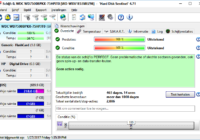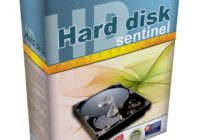Reallocated sectors, pending sectors and event count. Dealing with bad sectors.
It often goes like this. Your PC is acting weird, sluggish. You can’t put your finger on it. Someone, maybe in an online forum, suggests you may have hard disk problems. The term bad sectors is used. Windows Event Viewer may refer to a bad block. It is then suggested to look at the disk’s… Read More »



